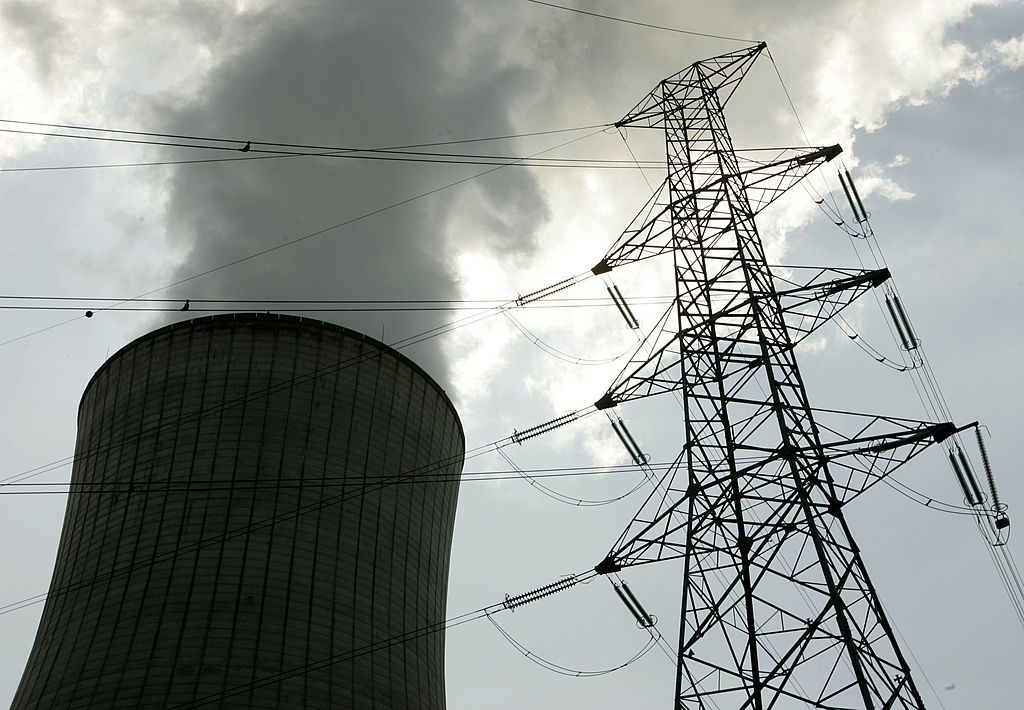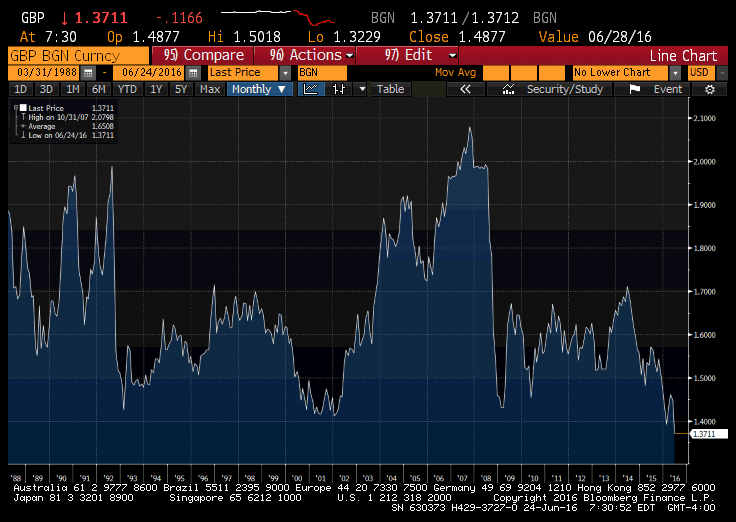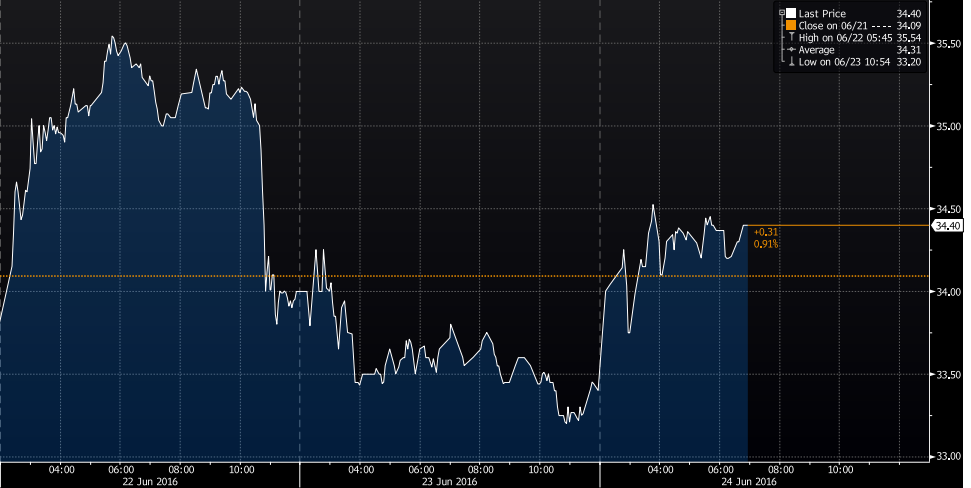Brexit aftermath: Fall in pound could drive up bills

In case you haven’t seen it anywhere else, here is what the pound looks like today:

With sterling at it’s lowest level since, well, since, oh, cripes, since 1985… 1985… wow, anyway the cost of everything we import will go up. In fact, just today it’s fallen 7%.
Looking just at coal, oil and gas UK trade data for 2015 suggests households and businesses spend nearly £21bn a year on imported energy – a lot of that is denominated in dollars, the currency against which the pound is now at it’s lowest level since… well you get it.
Adding 7% to the cost of these imports – through a fall in the value of the pound – would equate to an extra £1.4bn in costs to consumers.
But what about energy bills? Along with fuel bills they will be among the most directly affected by the weakness of our currency.
As for the UK gas price (measured in pounds) it’s also creeping up – though it looks like the market hasn’t quite worked out which way to go.

A couple of important provisos on our data.
Fuel imports are not always used for energy. For example, oil imports are also used for bitumen in roads and plastics, oil can also be refined and then re-exported to the EU so the way in which currency costs feeds through is difficult to calculate with certainty.
Furthermore, a weaker currency would potentially increase revenues from exports – though this has to be set against the prospect of higher trade barriers to our biggest trading partner as a result of Brexit.
Banks and analysts such as HSBC have forecast that an actual vote to leave could wipe 20% off the value of sterling, a claim which led Nigel Farage to say “so what?”

